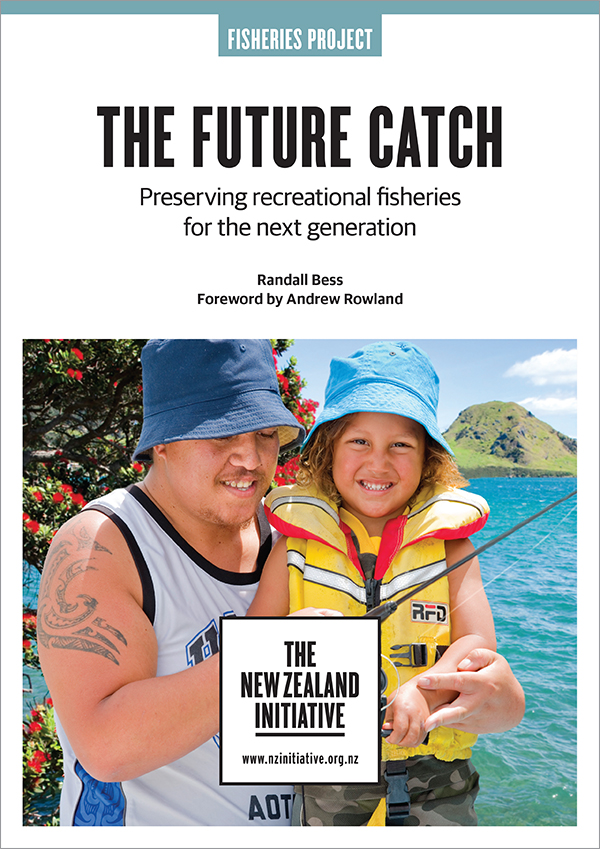Many New Zealanders love to fish. With the tenth longest coastline in the world, hundreds of thousands of New Zealanders fish recreationally each year in inshore waters.
Fishing is integral to the Kiwi way of life.
This is under threat.
Historically, too little attention has been directed at improving the fisheries that are important to recreational fishers.
If changes are not made to the management of recreational fisheries, New Zealanders can expect increasingly stringent constraints on their access to fisheries resources.
And, even then, we risk the type of catastrophic depletion that has too often characterised the recreational fisheries in other coastal nations.
Indeed, this level of depletion has already occurred in the blue cod and scallop fisheries in the Marlborough Sounds, the finfish fishery in Hawkes Bay and the rock lobster fishery along the northeast coast of the North Island.
This report, The Future Catch: Preserving Recreational Fisheries for the Next Generation addresses this critical issue. It propounds three key messages:
First, we need broad representation of recreational fishing interests with the establishment of a Western Australia type institution (http://recfishwest.org.au) recognized by the Government. This will be the source of peak body advice and central point of contact and referral for recreational sector issues.
Secondly, this Peak Body, the Government and other fishing sectors (customary and commercial) need to demonstrate a commitment to constructive and effective management of shared fisheries. Shared fisheries are where all sectors have an interest in catching more of the fish stock, but value their share of the catch quite differently.
This commitment can be demonstrated by agreeing on targets for higher abundance (biomass) for shared fisheries, and management measures to attain those targets. It could also be demonstrated by agreeing on indicators of core management performance (eg, tracking the satisfaction of the non-commercial fishing experience over time).
Thirdly, we recommend integrating recreational fisheries into government and ministry management policies and processes. This can be accomplished by developing a recreational fisheries policy in the context of shared fisheries,
- by improving the information available on recreational fishing, and
- by improving the Ministry for Primary Industries’ level of stakeholder participation and engagement.
- Switching the basis for allocating a total allowable catch (TAC) of a fishery between fishing sectors from discretionary to secured. Secure allocations in place incentivises sectors to collaborate to improve a fishery for the benefit of all. This necessitates developing a process to reallocate a TAC over time as social values change. It is important that this process benefits recreational fishers and compensates quota holders.
All recommendations are intended to improve New Zealanders’ recreational fishing experience, while upholding the secure rights associated with commercial quota holdings and Treaty of Waitangi settlement obligations.
The next step
It is vitally important these recommendations are met with a political will to make tough decisions, in this case, to preserve recreational fisheries for the next generation.
About the author
Dr Randall Bess is a Research Fellow at The New Zealand Initiative. Before joining the Initiative, he was a consultant for the US-based Environmental Defense Fund working on a range of fisheries issues. He previously worked for the Ministry for Primary Industries, and the former Ministry of Fisheries, for 13 years. Prior to that, he researched fisheries in New Zealand. He also fished commercially and recreationally in Alaska before moving to New Zealand in 1994. He holds a PhD from Massey University and a Master’s in Public Management from the Victoria University of Wellington. Prior to moving to New Zealand he gained a Bachelor’s degree and a Master’s of Business Administration.



